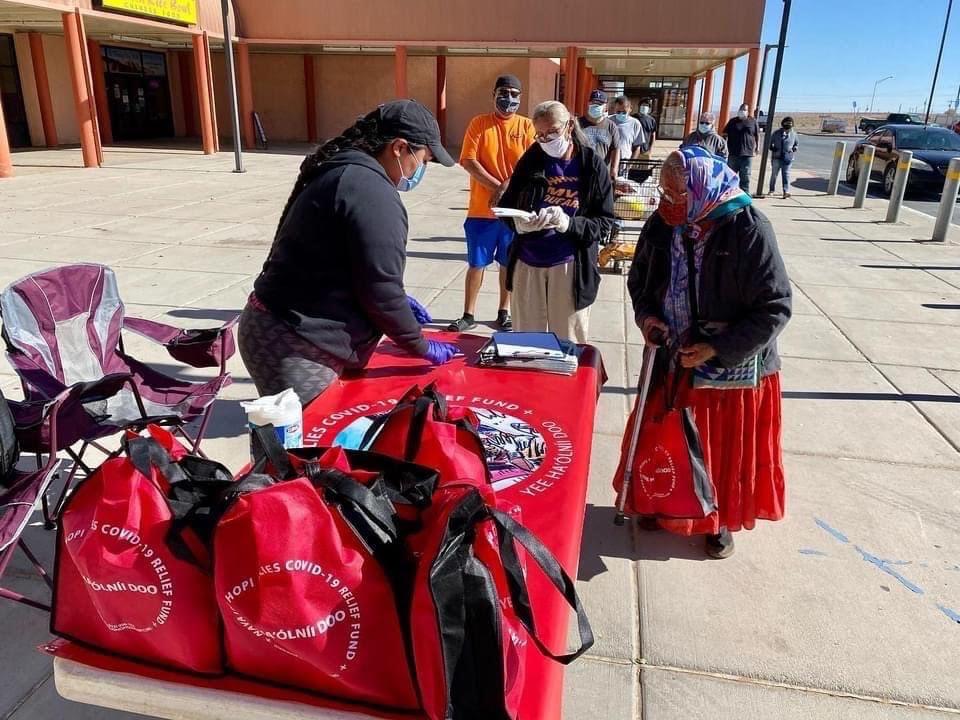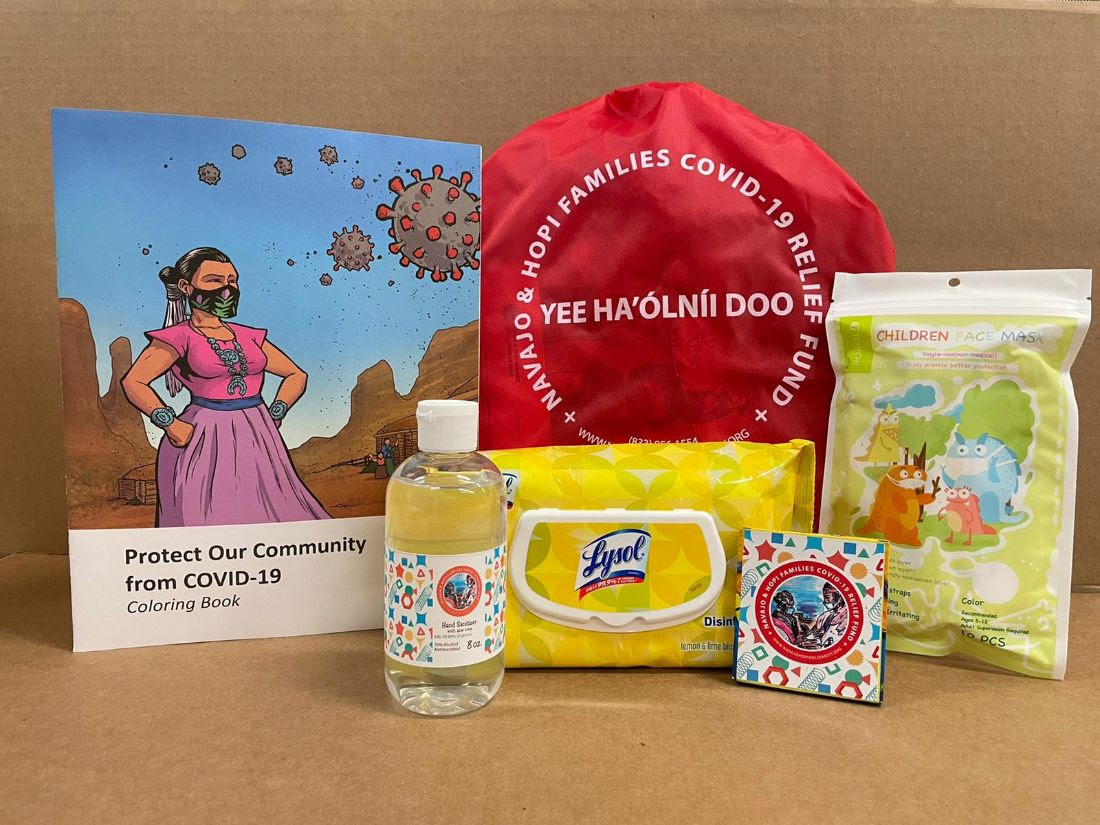
- Details
- By Native News Online Staff
WINDOW ROCK, Ariz. — Even with the high rates of vaccinations taking place among Navajo and Hopi citizens, the Navajo & Hopi Families COVID-19 Relief Fund (Relief Fund) is still stressing the importance of the usage of personal protective equipment (PPE).
To date, for the past 19 weeks, Relief Fund has conducted 243 PPE distributions in approximately 32 tribal communities. The sum of these distributions includes dispersing over 93,000 adult PPE kits and over 7,200 kid PPE kits.
“Providing PPE to our relations has remained a top priority of our distribution efforts,” Ethel Branch, Interim Executive Director of the Relief Fund said. “Wearing double- masks and sanitizing your hands are basic but effective measures in minimizing the spread of Covid-19. This is especially important right now while we are in this March to May mystery period during which we won’t know whether our country has contained Covid or whether we will be experiencing a fourth wave.”
To complement the adult PPE distributions, on March 15, the Relief Fund rolled out a kids’ PPE kit.
This effort came about as the result of Shandiin Herrera, the Relief Fund’s Board Secretary and Distribution Team Lead for Monument Valley, Utah, noticing adults were bringing their children to the PPE distributions and requesting PPE for them.
“I felt bad that we only had PPE for adults,” Herrera said. “I saw children wearing oversized masks and then I had an idea to start creating and distributing kids’ PPE kits.”
It took a month to organize getting the contents of the kids’ PPE kit together, which include: kid-sized disposable masks, hand sanitizer, crayons and a coloring book of safety precautions translated to both English and Navajo.
“We launched the kids kit rollout on the anniversary of the Relief Fund, which was significant,” Herrera said. “We’ve been super excited about getting these kits out into the communities and so far we’ve moved through quite a bit of the inventory.”
“Providing these kits helps instill a sense of responsibility,” she said. “It feels great to provide a dynamic way for children to learn proper safety measures.”
The Relief Fund’s PPE Distributions, which are posted on the Fund’s Facebook and social media sites, are completely open to the public and do not require any chapter or tribal affiliation for service.
“Because of this, our events serve more than just the host communities,” Begay said.
The PPE distributions are completely touch-free. Relief Fund volunteers fill out intake forms on mobile pad devices. Recipients are encouraged to keep their windows rolled up and are also given the option to scan a QR code and fill out the forms themselves.
Volunteers do not reach into vehicles and only place PPE kits in open truck beds or operator-opened hatchbacks. If neither apply, kits are hung on the rearview mirror for recipients to retrieve after they pull away from the event area.

Distributions like these also take place in the Hopi Nation.
According to Associate Director for the Hopi Foundation, Samantha Honani, the Foundation’s Emergency Relief Team has taken diligent efforts to protect Hopi communities which has included partnering with the Relief Fund.
“Through our partnership, we’ve been able to distribute weekly PPE kits to individuals and families either at our food distributions or at designated store locations on Hopi,” Honani said. “The attendance at distributions demonstrates the need for PPE from our community as many of our people continue to vigilantly protect themselves from the virus. We are thankful for our successful collaboration with the Relief Fund.”
Visit http://navajohopisolidarity.org to learn more about the Navajo & Hopi Families COVID-19 Relief Fund and to place a donation towards their COVID relief efforts.
More Stories Like This
New Mexico Will Investigate Forced Sterilization of Native American WomenUSDA Expands Aid for Lost Farming Revenue Due to 2025 Policies
Two Feathers Native American Family Services Wins 2026 Irvine Leadership Award
Bill Would Give Federal Marshals Authority to Help Tribes Find Missing Children
Indian Health Service to Phase Out Mercury-Containing Dental Amalgam by 2027

